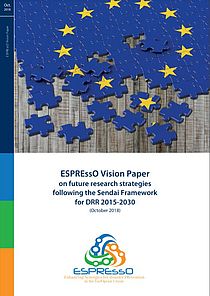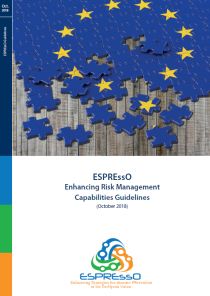Finalized Projects
On this page you will get insights into the history of finalized projects of the DKKV.
© Pixabay
Project history of DKKV
On this page we present already finalized projects in which DKKV has been involved.
INCREASE
The INCREASE joint project aims to strengthen societal resilience and contribute to disaster preparedness and strategic planning in Germany and Iran. To this end, gaps between theoretical knowledge, strategies, disaster management plans, capacities and actual practices in relation to multiple hazards are to be analysed and overcome.
The project focuses on an integrated analysis and assessment approach for hazards, risks, vulnerabilities and resilience and an integrated management approach for emergencies and disasters. Scenarios for pandemic situations, severe earthquakes and extreme meteorological events form the starting point for the assessment of risks, needs and capacities.
Within the overall project, the DKKV is leading a work package for knowledge transfer and mutual exchange and learning. As part of this work package, the DKKV is hosting workshops to facilitate exchange and sustainable knowledge transfer between partners. In addition, the DKKV has already facilitated three basic workshops on central terminologies, protection goals and scenarios. Furthermore, the DKKV is preparing a report on gaps and capacities of civil protection in Germany in the context of climate-related hazards, as well as a mapping of relevant actors in disaster risk management in Germany.
More information can be found on the website of the INCREASE joint project.
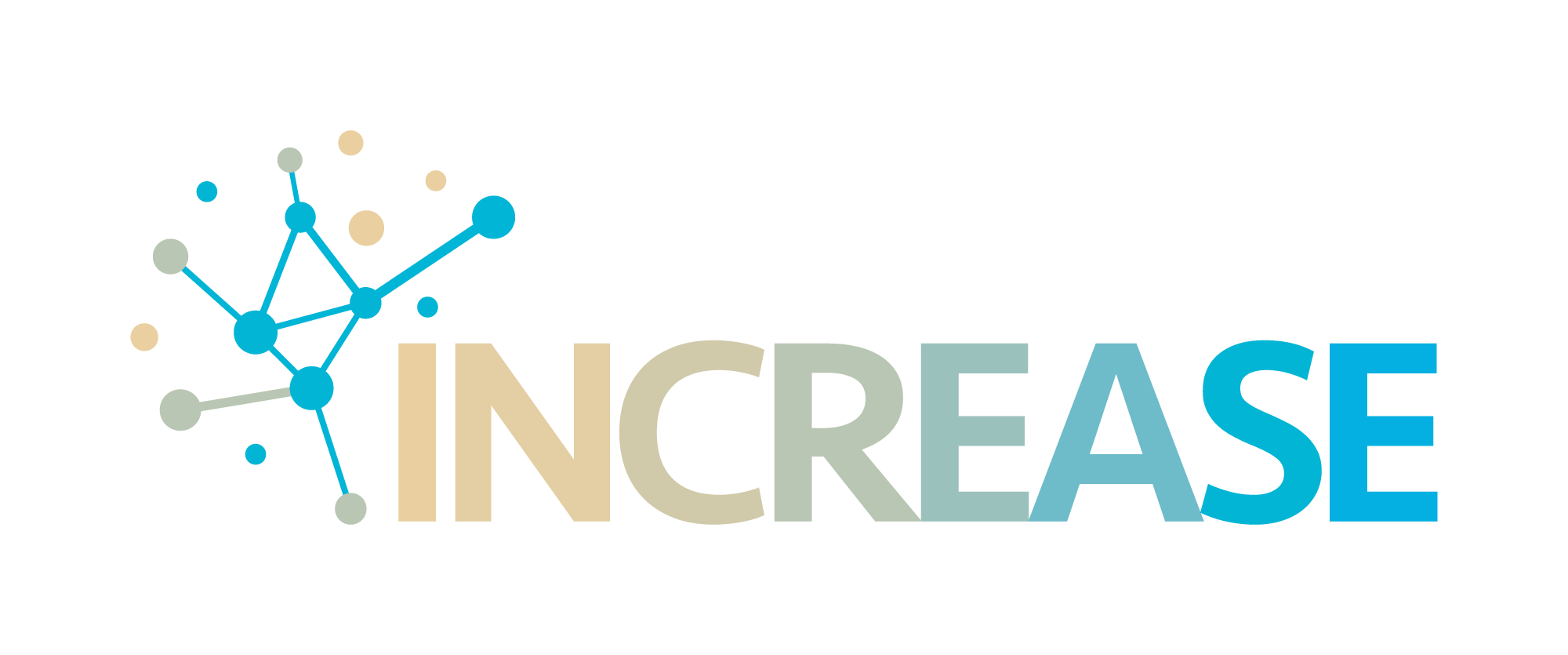
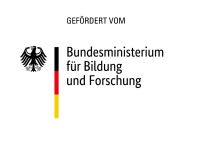
Project Period
February 2021 until January 2025
Funding Body
Federal Ministry of Education and Research (BMBF)
Project Management Agency
German Aerospace Center (DLR), DLR Projektträger
Project Partners Germany
KFS, FU Berlin • TH Köln • University of Bonn • THW • University of Würzburg • empirica ag • Leibniz Institute for Ecological Urban and Regional Development • KIT
Project Partners Iran
University of Social Welfare & Rehabilitation Sciences • International Institute of Earthquake Engineering and Seismology • Tehran University of Medical Sciences • Tehran Disaster Mitigation and Management Organization • Iranian Red Crescent Society • Tehran Fire Department • Tehran Urban Research and Planning Center • University of Tehran • Karaj City • Iran Grid Management Company
DISASTER RISK COMMUNICATION & PREPAREDNESS OF COMMUNITIES
Poor and socially disadvantaged people around the world are always at the receiving end of the aftermath of a disaster. People being able to save their lives and assets and supporting their families, neighbors, and other vulnerable groups are very important in this changing paradigm. This is where risk communication and preparedness of the communities advance as key factors. In this context, the Project Disaster Preparedness & Risk Communication of Communities gains importance.
The project is taken up by Durga Mohanakrishnan, from India, who is one of the selected fellows from the Alexander von Humboldt Foundation’s German Chancellor Fellowship Program for the 2022-23 batch and will be hosted by DKKV to do her research fellowship for a period of one year. The Alexander von Humboldt Foundation’s German Chancellor Fellowship Program is for university graduates from the United States, the People’s Republic of China, Brazil, India, and South Africa with an interest in international issues and demonstrated leadership potential.
The project focuses to collect immense knowledge and information and brilliant measures adopted by the local communities, experts, and other stakeholders of Germany, India and other countries to fight and prevent disasters and their impact through risk communication and preparedness. Here there is a vast scope for an exchange of knowledge and visioning of these practices and measures from the socio-economic context of different countries. The project also focuses on strategizing risk communication and preparedness measures for communities.
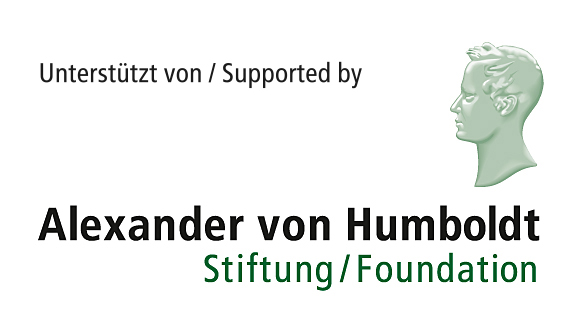
Project duration
Ocotber 2022 until September 2023
Funding Body
Alexander-von-Humbolt Foundation
Contact Person
DKKV-Office
info@dkkv.org
RESILIENCE IN TOURISM
The project is part of the German government’s Corona Tourism Package and was funded by the Deutsche Gesellschaft für Internationale Zusammenarbeit (GIZ) GmbH on behalf of the German Federal Ministry for Economic Cooperation and Development (BMZ). DKKV carried out the project in cooperation with Futouris, the sustainability initiative of the German travel industry.
Achieved goals:
- Development of a holistic concept for the resilience of tourism destinations and five methodological steps for identifying resilience-promoting strategies (Destination Resilience Analysis Guideline)
- Application of the methodology in the pilot destinations
- Compilation of options for action for the practical handling of risks for tourist destinations
- Implementation of workshops and training measures in the pilot destinations
- Creation of an online knowledge corner
- Creation of specific resilience guidelines for destinations in the Dominican Republic (Manual Samaná), Namibia (Manual Erongo) and Sri Lanka (Manual Ella)
- Examination of possibilities for certifying destinations with regard to their resilience by preparing an expert report and organizing a specialist workshop with global certification companies
- Providing information to the tourism industry and consumers at various events
- Designing the content created in the project in the form of local resilience guidelines, a holistic resilience guideline, flyers and brochures in German, English and Spanish
On the one hand, the project raised awareness and the importance of risk and resilience in the tourism industry and, on the other hand, concrete measures to increase resilience and risk-informed development were successfully implemented in the three destinations. In addition to the added value for local stakeholders in the destinations, this also contributed to increasing the safety of holidaymakers.
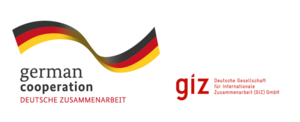

Project duration
July 2021 until October 2022
Funding
Federal Ministry for Economic Cooperation and Development (BMZ), German Development Cooperation GmbH (GIZ)
Project partner
Futouris e.V.
Resilient Hotels
Sustainable development of the tourism sector requires consistent management of climate and disaster risks. Hotels and resorts play an important role before, during and after disaster events and, especially in high-risk areas, help to safeguard the local economy and development even in the event of extreme events. The hotels’ investments in risk-reducing measures do not only have a direct protective effect for customers and employees, but also a positive effect on the resilience of surrounding communities and the general population.
The basic concept of the project “Resilient Hotels Tourism” was developed within the framework of the Global Initiative for Disaster Risk Management (GIKRM) to promote improved disaster risk management and strengthen resilience in the tourism sector. Hotel Resilient Certifications provides internationally recognized disaster risk management and climate change standards that systematically support hotels and resorts in reducing risks to operations from natural and technological hazards. Guided by the standards, hotels and resorts can strengthen their disaster risk management capabilities and hotel facility security. The mission of the Hotel Resilient approach is to establish and promote climate and disaster risk management standards and practices in the hotel industry through certification, training, scientific research, and global knowledge dissemination.
In the further development of this initiative, DKKV wants to show, through cooperation with stakeholders of the tourism sector, exemplary how a coherent management of climate and disaster risks in the tourism sector can be supported in order to create future perspectives in the partner countries and to secure sustainable development. In particular, the interaction of the private sector and the promotion of local resilience makes the tourism sector particularly interesting in this respect.
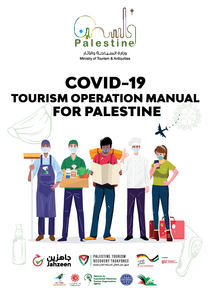
Activities
VIP event in cooperation with the Federal Foreign Office (AA), the Federal Ministry for Economic Cooperation and Development (BMZ) and the tourism industry
Project duration
December 2019 until October 2020
Funding
German Society for International Cooperation (GIZ)
Project partner
Hotel Resilient Certificates UG
Definition of protection goals and levels of critical infrastructures in Germany (DESKRIS)
In Germany, civil protection consists of actors from a wide variety of levels of responsibility and specialist areas. Societal, ecological and technical change is leading to new demands on civil protection. The process of negotiating protection goals is an important goal for the successful cooperation of the actors.
From January 2018 to June 2019, the DKKV is working together with scientific staff of the AG Interdisziplinäre Sicherheitsforschung of the FU Berlin and staff of the University of Bielefeld on the definition of protection goals and levels of critical infrastructures in Germany (DESKRIS). The joint project was funded by the Federal Office of Civil Protection and Disaster Assistance (BBK).
The work of the project aimed at reviewing the state of research on the current debate on protection goals, the legal framework and the integration of actors from politics, science and civil society. With the help of expert workshops, online surveys and interviews with political decision-makers, the various needs of the actors were recorded.
The negotiation process of protection goals and levels for critical infrastructures was examined using the areas of “food” and “health” as examples in order to derive recommendations for action.
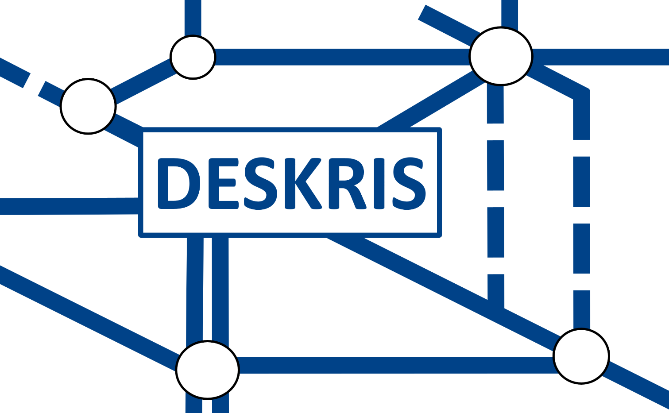
Project duration
January 2018 until June 2019
Funding
Federal Office of Civil Protection and Disaster Assistance (BBK)
Project partner
Free University of Berlin, University of Bielefeld
Weather warnings: from extreme event information to communication and action (WEXICOM)
WEXICOM is an interdisciplinary research project that contributes to the optimal use of weather forecasts, with a focus on severe weather warnings. The project, funded within the Hans Ertel Center for Weather Research, is a collaboration of meteorology (Freie Universität Berlin), social sciences (Disaster Research Center, Public Safety Research Forum, German Committee for Disaster Reduction e.V.) and psychology (Max Planck Institute for Human Development). The goal of the inter- and transdisciplinary approach is to enable transparent and effective communication of risks and uncertainties to different user groups.

Project duration
January 2015 until December 2018
Funding
Hans Ertel Center for Weather Research, German Weather Service
Project partner
Freie Universität Berlin, Institute of Meteorology; Freie Universität Berlin, Disaster Research Unit; Public Safety Research Forum; Max Planck Institute for Human Development
Enhancing Synergies for disaster PRevention in the EurOpean Union (ESPREssO)
ESPREssO contributes to a new strategic vision for disaster risk reduction and climate change adaptation. The project was structured along three challenges:
1. to find ways to make national as well as European approaches to Disaster Risk Reduction (DRR), climate change adaptation and resilience building more coherent.
2. to improve risk management in six different European countries by bridging the gap between research and policy/law at local as well as national level.
3. to make the management of transboundary crises more efficient.
As part of the project, a stakeholder forum was set up, which was attended by around 50 experts from various fields. The participants came from different policy areas, from the local to the regional and national level. The forum was also attended by academics and representatives of civil society, international and national platforms, and the private sector. The forum was again divided into three think tanks, each of which will work on one of the three challenges and exchange ideas with each other. The DKKV was significantly involved in the recruitment of actors as well as in the dissemination of the project results. Furthermore, DKKV contributed to the preparation of the project results as well as to the design and implementation of the three scenario exercises (“serious games”), which were carried out within the framework of the three think tanks.
The guidelines together with the vision paper represent the final result of the ESPREssO project “Enhancing Synergies for Disaster Prevention in the European Union”.
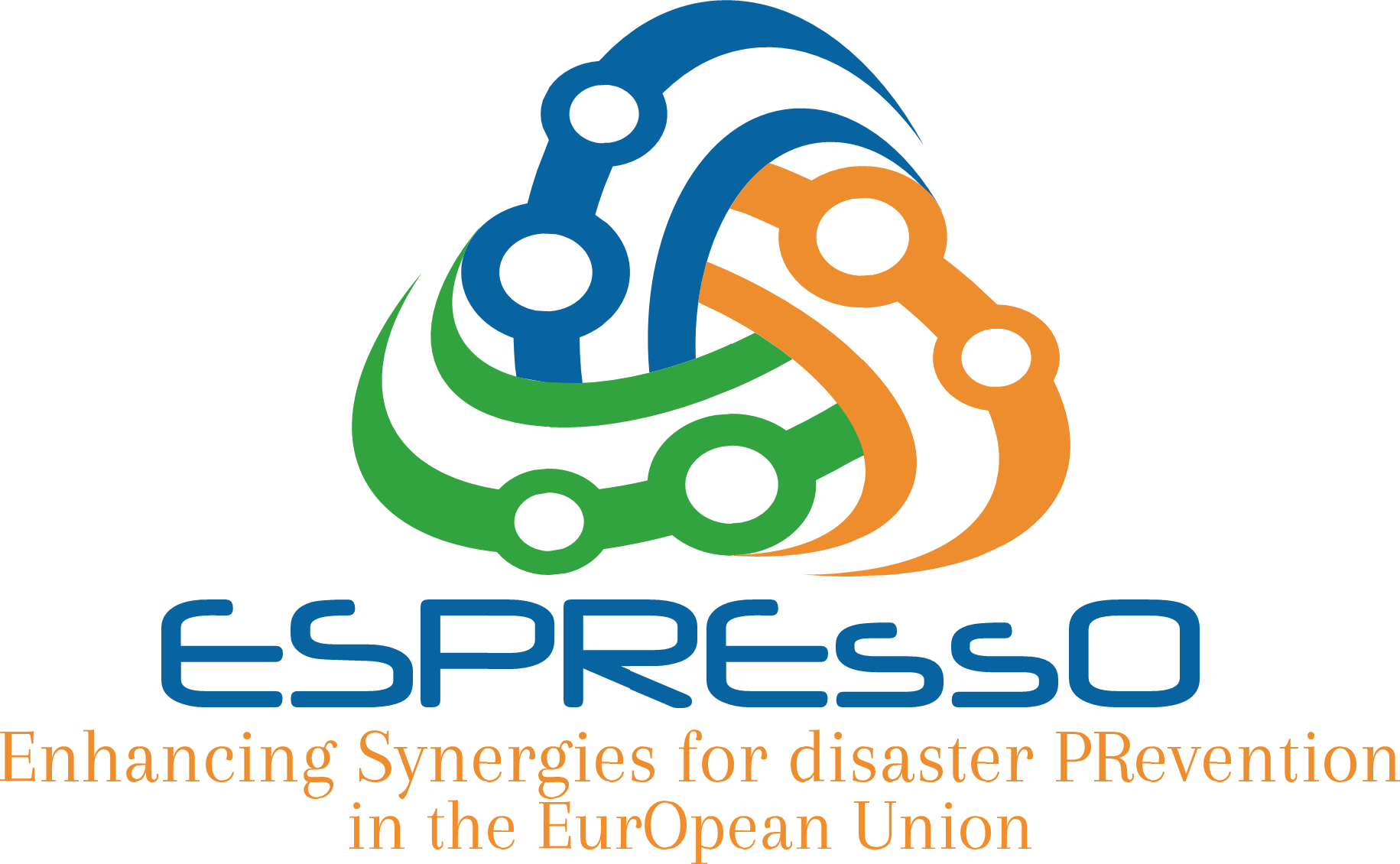
Project duration
Mai 2016 until October 2018
Project partner
AMRA Scarl (Koordinator), Helmholtz-Zentrum Potsdam / Deutsches Geoforschungszentrum, Bureau de Recherches Géologiques et Minières, Deutsches Komitee für Katastrophenvorsorge e.V., ETHZ Zürich, University of Huddersfield, Københavns Universitet
Visionpapers
Guidelines
More
Schriftenreihen
Newsletter
Prevention of heavy rainfall events and measures for water-sensitive urban development
In recent years, heavy rainfall events and their consequences have received increased media attention, as they can cause great damage within a very short time due to short, heavy precipitation. The short warning time poses a challenge for precautionary measures.
The project “Precaution against heavy rain events and measures for water-sensitive urban development” aims at analyzing the status quo of heavy rain precaution in Germany in order to obtain a systematic overview of available instruments and measures. With the help of the work on the status quo, needs for action on the local, regional and federal level are to be identified in order to provide possible solutions for improving disaster prevention in the final step.
adelphi, UP Transfer and DKKV worked on the project, which was funded by the German Federal Environment Agency (UBA), from January 2017 to April 2018. DKKV’s work here focused on warnings, hotspots, and environmental impacts during heavy rain events.
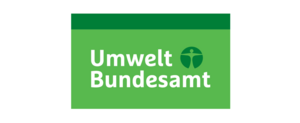
Project duration
January 2017 until April 2018
Funding
Federal Environment Agency (UBA)
Project partner
adelphi, UP Transfer
Participation in thematic preparatory group in the run-up to the World Humanitarian Summit (WHS) in Istanbul 2016
Over the past decade, the number of people affected by humanitarian crises has doubled and spending on international humanitarian aid has tripled. Around 80 percent of aid money goes to refugees and displaced people in conflicts and crises; according to the UN, this figure was more than 51 million people in 2014. Future aid needs are increasing dramatically, but the humanitarian system is already overburdened. Therefore, there is an urgent need to make humanitarian aid more efficient and effective.
Ban Ki-moon, Secretary-General of the United Nations (UN), took the initiative for this first World Humanitarian Summit in 2013. By May 2016, the United Nations Office for the Coordination of Humanitarian Affairs (OCHA) is conducting a global consultation that includes the voices of not only states and aid organizations but also those affected. In addition, UN-OCHA has formed four international working groups to prepare the content. DKKV is active in the working group on “Risk Management and Vulnerability Reduction” and contributes its long-standing expertise. The consultations will focus on the following topics:
– Participation of affected people, especially women.
– Protection of affected people, especially in conflicts, and safeguarding international humanitarian law
– New approaches to protracted and recurrent crises and conflicts
– New global solutions for existing funding gaps
– Adaptation of the humanitarian system to new situations, actors and challenges
– Decentralization of preparedness and response
– Innovations in humanitarian aid
In addition, it is planned to focus more on gender equality and the risks of urbanization, and to better link humanitarian aid with development cooperation and peacekeeping. The first World Humanitarian Summit is intended to generate the necessary attention and support for these urgent issues. An important tool in this regard is disaster risk reduction, including risk management, reducing the vulnerability of people at risk, and strengthening national and local institutions and forces. Studies repeatedly show that investing in preparedness significantly reduces damage as well as the need for assistance during emergencies. This will be the focus of DKKV’s contributions to WHS preparedness.
The results of this work will be important for Germany’s international humanitarian aid as well as for disaster management organizations in Germany, and DKKV will actively involve its national partners and members in the exchange and has convened a panel of experts for this purpose.
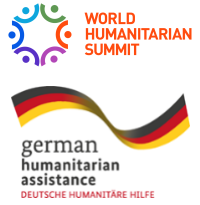
Project duration
June 2014 until May 2016
Funding
Federal Foreign Office, Humanitarian Aid and Demining Division, Division S 05
Analysis of possibilities for cooperation and coordination of national platforms and national actors in the field of preparedness and prevention in (high) risk countries. Pilot country: Kyrgyzstan
The project achieves the elaboration of an analysis and contextualization of the cooperation and coordination opportunities between National Platform and national actors.
The concept pursues the following three sub-objectives:
Sub-objective 1: Scientific analysis of existing structures and ways of working of national actors, including the national cluster approach and the National Platform in Preparedness and Prevention.
Sub-objective 2: Scientifically contextualize opportunities to improve collaboration among national actors, with particular attention to the national cluster system and the National Platform.
Sub-objective 3: To present a comprehensive scientific study on the opportunities for collaboration between national actors, including the National Cluster System and the National Platform, with particular attention to the transferability of the study’s findings, including best practices.
The project aims to develop a scientific study that takes particular account of local and national conditions in order to develop options for action that meet the expectations of the national project partners. Nevertheless, importance will also be attached to the fact that, in addition, transfer to other countries will also be possible. This will require adaptations for the respective country, which can only be developed by the national actors. This will ensure the “ownership” approach.

Project duration
September 2013 until October 2015
Funding
Evaluating Office
Project partner
Secretariat of the National Platform for Disaster reduction of Kyrgyz Republic
Improved coordination and cooperation between National Platforms and actors in the field of disaster risk reduction
One of the tasks of the National Platforms is to support the coordination and involvement of all relevant actors in the field of disaster risk reduction. They were established in the course of the signing of the “Hyogo Framework for Action” (HFA) in 2005 in order to bring together the different actors for the cross-sectional task of disaster reduction and to continuously improve the measures for disaster reduction. The survey of 50 National Platforms conducted by DKKV on behalf of United Nations International Strategy for Disaster Reduction (UNISDR) recommends to better involve actors and to offer services to the actors (see Key Recommendations, page V and VI). Further, the role or mandate of National Platforms does not always appear to be clear. In many cases, they have insufficient financial resources. Moreover, there is often a lack of a concrete legal basis for the work of National Platforms. Therefore, many National Platforms face the challenge of adapting their tasks, financial resources and legal basis to the requirements so that they can fulfill their mission.
The overall objective of the project was therefore to improve the cooperation of National Platforms and national actors in the field of disaster risk reduction, with a special focus on national clusters.

Project duration
September 2013 until October 2015
Funding
German Federal Ministry for Economic Cooperation and Development (BMZ)
Project partner
Ministry of Emergency Situations of Kyrgyz Republic Secretariat of the National Platform for Disaster reduction of Kyrgyz Republic
National progress report on the implementation of the Hyogo Framework for Action (2013-2015)
The Hyogo Framework for Action is the international community’s action program for the period 2005 – 2015 to reduce loss of life, social, economic, and environmental assets and values from natural hazards. With the adoption of the HFA at the 2005 World Conference for Disaster Reduction (WCDR) in Japan, United Nations Member States recognized the need for regular reporting on progress in implementation and voluntarily committed themselves (HFA, IV/ B/§ 30). In January 2005, the German government designated DKKV as the German focal point for reporting on progress in implementing the HFA. Cross-national coordination of reporting is carried out by the UNISDR Secretariat. The results of HFA reporting feed into the Secretary-General’s report to the General Assembly. In addition, they provide the ISDR Secretariat with an important information base for regional analyses and syntheses on disaster risk reduction. The reports are core documents of the ISDR system and disaster risk reduction in the United Nations system. Through the reports, remaining gaps and needed resources can be identified and lessons learned can be evaluated and shared among states and organizations as appropriate.
The preparation of the “National progress report on the implementation of the Hyogo Framework for Action (2013-2015)” was funded by the German Federal Foreign Office – Humanitarian Aid Unit.
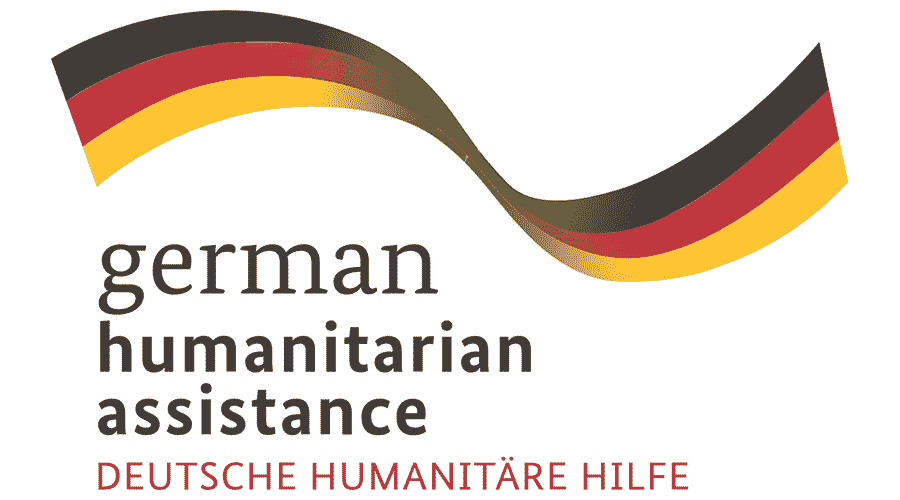
Project duration
Mai 2014 until April 2015
Funding
Federal Foreign Office – Humanitarian Aid and Mine Action Division
New Multi-Hazard and Multi-Risk Assessment Methods for Europe (MATRIX)
Major task were to:
1. develop new methodologies for multi-type hazard and risk assessment, with a focus on a) risk comparability, b) cascading hazards and c) time-dependent vulnerability within the framework of conjoint or successive hazardous events.
2. compare this new multi-hazard and multi-risk analytical framework with the state-of-the-art in probabilistic single-risk analysis.
3. establish an IT framework for test cases analysis following a multi-risk approach, considering both real-world test cases or by exercises involving an idealised synthetic (or virtual) test example.
4. disseminate the results to the relevant communities, end users and stakeholders, in particular National Platforms for Disaster Risk Reduction, and to incorporate their views into the development of multi-risk assessment methodologies and tools.
The various tools and methods were assessed in three test study areas: Naples, Guadeloupe and Cologne
DKKV was mainly involved in the MATRIX dissemination activities as described in point 4.
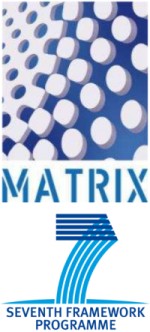
Project duration
October 2010 until December 2013
Funding
European Commission – Seventh Framework Programme
Project partner
Coordinator: Helmholtz-Zentrum Potsdam Deutsches GeoForschungsZentrum (GFZ); Partner: AMRA, BRGM, IIASA, ASPINALL, KIT, TU-Delft, ETH, ISA-CEABN, DKKV, UBC
Return of experience for enhanced integrated prevention (REX)
The overall objective of the project was to contribute to the development of knowledge-based disaster-prevention policies.
Central to the project were:
– Tackling the critical issue of whether the existing technical frames and qualitative preventative measures are sufficient in dealing with extraordinary natural events.
– An assessment of how effectively, and to what degree, prior knowledge has been implemented, with the aim of improving civil protection.
– An evaluation of the extent to which design criteria and experience drawn from previous events have been adapted and integrated into existing prevention strategies or led to the readjustment of preventative arrangements.
– A consideration of the adaptation of the frameworks and prevention quality in view of societal changes (e.g. urbanization or demographic change), and the projected weather-induced extreme events caused by climate change.
The project was based on the analysis of 15 case studies from Germany, the Czech Republic, Poland and France, and within this framework an analysis of 28 so-called ‘hotspots’ took place.
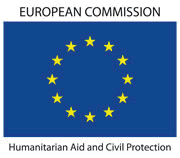
Project duration
October 2010 until December 2011
Funding
co – financed by the EU, Financial Instrument for Civil Protection
Project partner
Coordinator: DKKV; Partners: French Association for Disaster Risk Reduction (AFPCN), Czech Hydrometeorological Institute (CHMI), Polish Institute of Meteorology and Water Management (IMGW)
Supporting the implementation of operational GMES services in Emergency Response (linkER)
DKKV was in charge of collecting user requirements on the technical implementation of the interfaces, the analysis of the integration feasibility of ERS products into given workflows, the validation of implemented interfaces, the evaluation of workflow through user feedbacks and the user workshops.
DKKV covered processes related to eight national focal points in the following countries: Austria, Czech Republic, Hungary, Luxembourg, Netherlands, Poland, Slovakia and Sweden.
Today GMES ERS is known as Copernicus EMS. You can find further information on Copernicus Emergency Management Service here.

Project duration
September 2009 until December 2011
Funding
European Commission
Project partner
Coordinator: egeos; Partner: DKKV, DPC, DLR, ASI, INDRA, NOA, Booz&Co, Elsag Datamat



